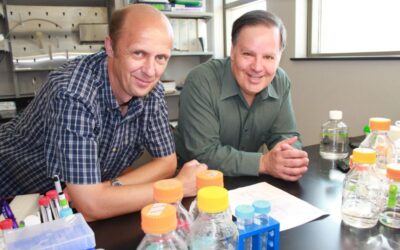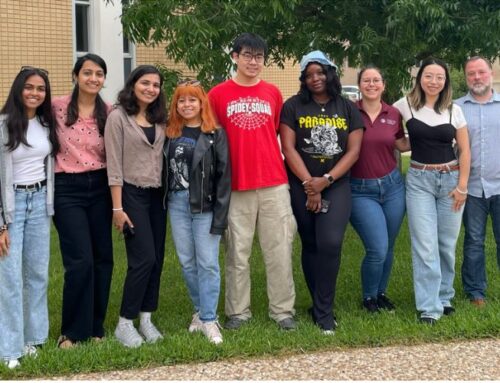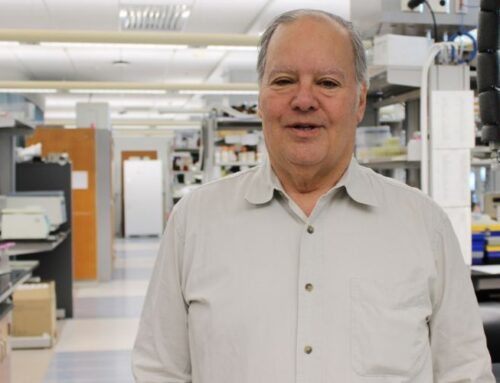Potential Therapeutic for Liver Fibrosis Discovered by TAMU Biology Researchers
By: TAMU Biology
 Researchers at Texas A&M University’s Department of Biology, led by Drs. Richard Gomer and Darrell Pilling, along with Biology undergraduate and Beckman Scholar Trevor Martinez, have made a significant discovery in the fight against liver fibrosis, commonly known as cirrhosis of the liver. Their study, recently published in PLOS ONE, explores how blocking a specific enzyme might help reduce liver damage and inflammation.
Researchers at Texas A&M University’s Department of Biology, led by Drs. Richard Gomer and Darrell Pilling, along with Biology undergraduate and Beckman Scholar Trevor Martinez, have made a significant discovery in the fight against liver fibrosis, commonly known as cirrhosis of the liver. Their study, recently published in PLOS ONE, explores how blocking a specific enzyme might help reduce liver damage and inflammation.
Background on NEU3 and Liver Fibrosis
Liver fibrosis is a condition where the liver becomes scarred due to long-term damage. This can eventually lead to cirrhosis, a severe form of liver disease. The researchers focused on an enzyme called neuraminidase 3 (NEU3), which is known to play a role in various inflammatory diseases. They wanted to see if blocking NEU3 could help reduce liver fibrosis.
The Study
To test their hypothesis, the researchers used a model where mice were given a chemical called CCl4 to induce liver damage, mimicking the effects of liver fibrosis. They then treated these mice with a compound called 2-acetyl pyridine (2AP), which inhibits NEU3.
Key Findings: The study found that levels of NEU3 increased in the livers of the mice treated with CCl4. The NEU3 inhibitor 2AP reduced the CCl4-induced liver inflammation and scarring in both male and female mice. The 2AP treatments reversed additional changes in the liver caused by CCl4, such as increased levels of NEU3. Interestingly, female mice showed a significant increase in certain immune cells in the liver after CCl4 treatment, which was reduced by 2AP.
Implications for Human Health
The researchers also looked at human patients with liver disease. Patients with nonalcoholic fatty liver disease (NAFLD) and nonalcoholic steatohepatitis (NASH) had higher levels of NEU3 and changes in their blood proteins similar to those seen in the mice. This suggests that blocking NEU3 might also help reduce liver inflammation and fibrosis in humans.
Conclusion
This work from Biology department faculty and a Biology undergraduate student provides promising insights into a new potential treatment for liver fibrosis. Their findings suggest that NEU3 inhibitors like 2AP could be a valuable tool in reducing liver damage and inflammation, paving the way for further studies and potential clinical trials.





